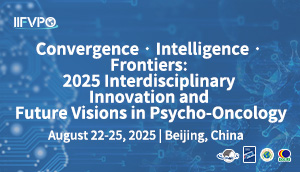Guest Editors
Prof. Rafael Fernández Castillo
E-mail: rafaelfernandez@ugr.es
Affiliation: Biosanitary Research Institute of Granada (ibs.GRANADA), 18010 Granada, Spain
Research Interests: psycho-oncological aspects; stigma in breast cancer
Summary
Breast cancer represents not only a significant physical health challenge but also poses considerable psychological burdens. Psycho-oncology, the interdisciplinary field dedicated to understanding the psychological, emotional, and social responses to cancer, has emphasized the critical need to address psycho-oncological factors in breast cancer management. Patients frequently experience high levels of anxiety, depression, diminished self-esteem, fear of disease recurrence, and heightened vulnerability. If left unaddressed, these psychosocial challenges can significantly compromise treatment adherence, deteriorate quality of life, and adversely affect clinical outcomes.
A particularly relevant topic within psycho-oncological research is the stigma associated with breast cancer. Stigmatization may originate from societal misconceptions portraying cancer as a terminal illness, from perceptions of loss of femininity following mastectomy or bodily changes, and from a pervasive lack of public understanding about the disease. Such stigma often results in social isolation, self-blame, and shame among patients, thereby exacerbating psychological distress and diminishing engagement with social and medical support systems.
Empirical evidence demonstrates that psycho-oncological interventions—such as individual and group psychotherapy, cognitive-behavioral therapy, and mindfulness-based programs—substantially enhance emotional well-being and psychological resilience among women with breast cancer. Furthermore, these interventions play a pivotal role in mitigating the negative effects of stigma, facilitating more effective coping mechanisms, and promoting better overall adjustment to the illness.
Contemporary research efforts are focused on developing strategies to systematically integrate psycho-oncological support within standard oncological care and to design public health initiatives aimed at reducing stigma and promoting cancer awareness. The overarching goal is to not only enhance the quality of life for breast cancer patients but also to improve clinical outcomes by fostering a holistic approach to treatment. A comprehensive care model that simultaneously addresses both somatic and psychosocial dimensions is increasingly recognized as indispensable in modern oncology, reaffirming the essential role of mental health care in the therapeutic process for breast cancer.
Keywords
Psycho-oncology; Breast cancer; Stigma; Emotional well-being; Psychological intervention



